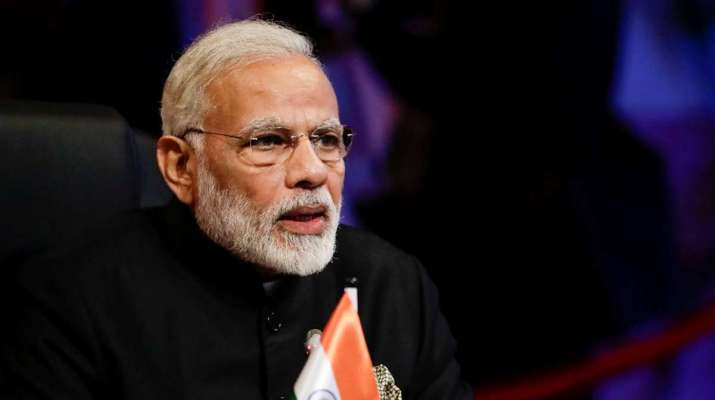
Elections are being held across India to form the 17th Lok Sabha (the lower house of the Indian parliament) in seven phases from 11 April to 19 May 2019. The election period, touted in global and domestic media as “the world’s largest exercise in democracy” is widely seen to be a referendum on not only the incumbent Indian Prime Minister Narendra Modi, but also the administration of the right-wing party he leads, the Bharatiya Janata Party (BJP). With vote counting to be conducted and the results declared on 23 May, incumbent senior politicians of the Hindu Nationalist BJP are intensifying their appeal to non-Hindu votes, including those of Buddhists and the Dalits.
Dalit sub-castes occupy a disproportionately influential voting bloc through the Bahujan Samaj Party (BSP) in Modi’s state of Uttar Pradesh. This has resulted in a vigorous campaign that arguably dates back years, with Modi encouraging the excavation of Buddhist sites in the state and paying frequent tributes to Dr. B. R. Ambedkar (1891–1956), the founder of the Dalit conversion and caste justice movement. Modi recently chose to develop five areas associated with Ambedkar, and inaugurated a memorial to him last October. (India Today)
Ven. Prashil Ratna, president of the NGO Sanghakaya Foundation, told Religion News Service: “There are an estimated 500 NGOs and 2.5 million Buddhists in Gujarat currently. More people in small towns and rural areas have started turning to Buddhism since Modi’s tenure.” Others like Naresh Patel, a retired government medical officer in Gujarat, are more skeptical, taking the view that Modi sees splintering the Dalit vote and wooing a chunk over to the BJP as critical to his re-election success. (Religion News Service)
India’s elections come on the heel of heightened tensions with Pakistan after “a few weeks of intense escalation and cross-border airstrikes” that occurred in response to a suicide attack that killed 40 Indian soldiers on 14 February. (The New York Times)
The polls have been vigorously contested through the media and social media, and accusations of fake news and bribery have abounded. Amit Shah, president of the BJP and ideological right hand since Modi’s days as chief minister of his home state in Gujarat in the early 2000s, notably targeted Christians and Muslims in his offer to throw out illegal immigrants if re-elected, while exempting Buddhist and Hindu refugees. (New Delhi Television)
In a Tweet, the BJP declared: “We will ensure implementation of NRC [National Register of Citizens] in the entire country. We will remove every single infiltrator from the country, except Buddha, [sic] Hindus and Sikhs: Shri @AmitShah #NaMoForNewIndia” (Twitter)
Since 2014, Modi has attempted to project an image of a BJP-governed India as a loyal supporter of Buddhism. Over the years, he has variously leveraged the Ministry of Culture and the Ministry of Tourism and deployed consular staff in diplomatic missions around the world to invite Buddhist leaders, scholars, media, and NGOs to India for conferences and gatherings. The most prominent of these were the “Samvad” conferences, which were mostly hosted by the Vivekananda Foundation.
While reactions to the Indian government’s relationship to Buddhism have been mixed at best (with results in the field of international diplomacy and domestic politics correspondingly uncertain), it is undeniable that no previous Indian PM has done so much to pull Buddhism into the orbit of India’s domestic politics and international diplomacy. Vishwasrao Sonawane, a retired professor of archaeology and ancient history at Maharaja Sayajirao University, told Religion News Service: “Because of Modi’s political ascendency, ideological and intellectual engagement with Buddhism grew in a more rigorous way.” (Religion News Service)
Some who have attended the Samvad conferences over the years, including government representatives and journalists, have suggested that the touting of Hinduism alongside Buddhism is not contradictory or mutually exclusive, especially in the context of the BJP’s vision of a “Vedic” civilization. Whether this domestically appealing framing of Buddhism has the same effect on the Japanese, Chinese, and many other Buddhist communities the ministries have reached out to, should be looked at case by case.
See more
47 Muslim-Yadav-Dalit seats will decide BJP’s fate in Uttar Pradesh (India Today)
India’s Hindu prime minister touts hometown’s Buddhist links as vote nears (Religion News Service)
Modi’s Campaign of Fear and Prejudice (The New York Times)
Amit Shah Says BJP Will Ensure Citizenship For Hindu, Buddhist Refugees (New Delhi Television)
Bharatiya Janata Party BJP Twitter post, April 11 (Twitter)












